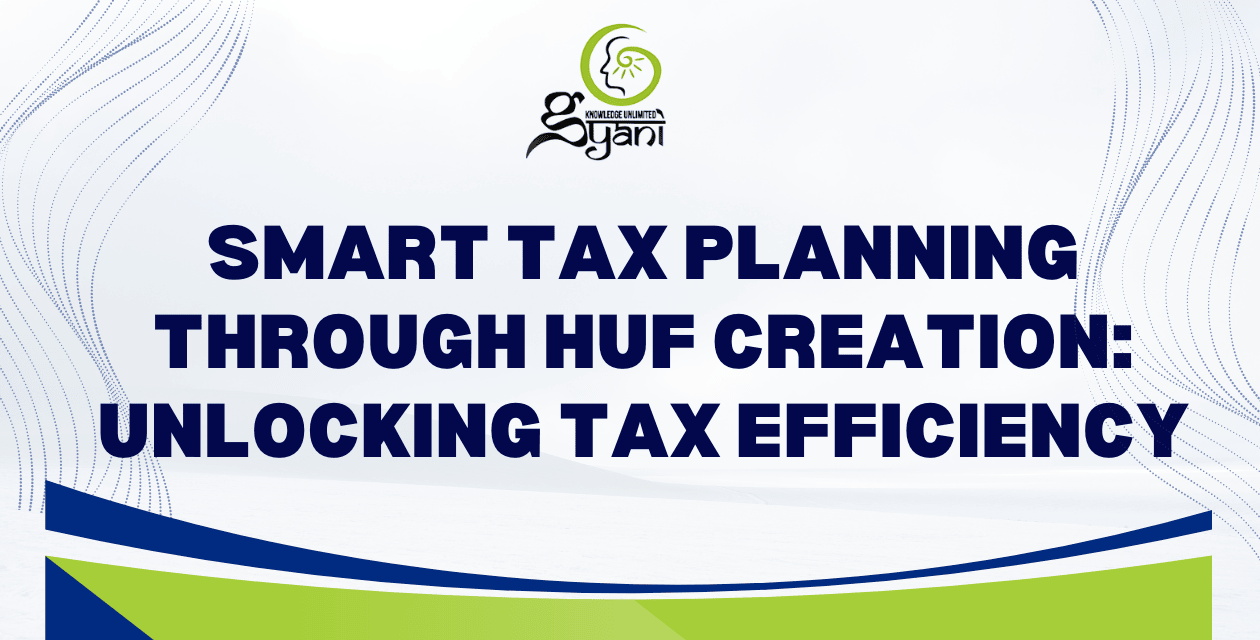
Smart Tax Planning Through HUF Creation: Unlocking Tax Efficiency
The Hindu Undivided Family (HUF) is a well-established vehicle for tax planning in India. In this blog, we explore the nuances of HUFs, covering their formation, key roles, taxation aspects, and the substantial tax-saving benefits they offer.
Core Concepts: Karta, Coparceners, and Members
- Karta: The Karta, usually the eldest male member, manages the HUF’s affairs. In case of his demise, the next senior male assumes the role.
- Coparceners: These are direct descendants (male and female) up to four generations from a common male ancestor. Since 2005, daughters enjoy coparcenary rights even after marriage.
- Members: Spouses and children contribute to the HUF’s assets. Coparceners can demand partition and become Karta, but members cannot.
Formation and Composition of HUF
- Applicable to Hindus, Sikhs, Jains, and Buddhists.
- Formed by executing an HUF deed on stamp paper, followed by applying for a PAN and opening a bank account in the HUF’s name.
- Assets typically include ancestral properties, gifts, or proceeds from sales of joint property.
Income Sources for HUF
HUFs can earn income from various sources except salaries, such as:
- Rental Income from House Property
- Business or Professional Income
- Capital Gains (shares, securities, property)
- Income from Other Sources (interest, dividends)
Residential Status of HUF
- Resident: Managed wholly or partially in India.
- Non-Resident: Managed entirely outside India.
- Resident and Ordinarily Resident (ROR): Karta must be a resident for at least 2 of the last 10 years and present in India for at least 730 days in the preceding 7 years.
Taxation of HUF
- Taxed similarly to individuals, with its own PAN and separate income tax return.
- Eligible for deductions such as:
- Up to ₹1.5 lakh under Section 80C
- Medical insurance premiums under Section 80D
- Capital gains exemptions under Section 54
- Interest deductions on home loans under Section 24B
- Gifts up to ₹50,000 from non-relatives are tax-free
Partition of HUF
- Only total partition is recognized under Indian tax law, executed through a deed on stamp paper.
Conclusion
Creating an HUF offers significant tax benefits, including separate exemptions and deductions. By spreading income across family members, an HUF reduces overall tax liability, maximizing financial efficiency.
At Gyani Advisory, we specialize in comprehensive HUF consultancy, from formation to advanced tax planning. Our expert team ensures seamless navigation of legal complexities, empowering HUFs with customized, compliant, and efficient financial strategies. Contact us to unlock the full potential of your HUF.






